July-August 2013 e-bulletin - LLAS Centre for languages, linguistics and area studies
The monthly LLAS Centre e-bulletin gives information on events, news items and newly available resources. Register if you would like to receive notification of future e-bulletins via email.
 |
News Bulletin |
Dear colleague,
Welcome to the LLAS e-bulletin for July-August 2013. Click here to see this email on the LLAS website.
Message from the Director 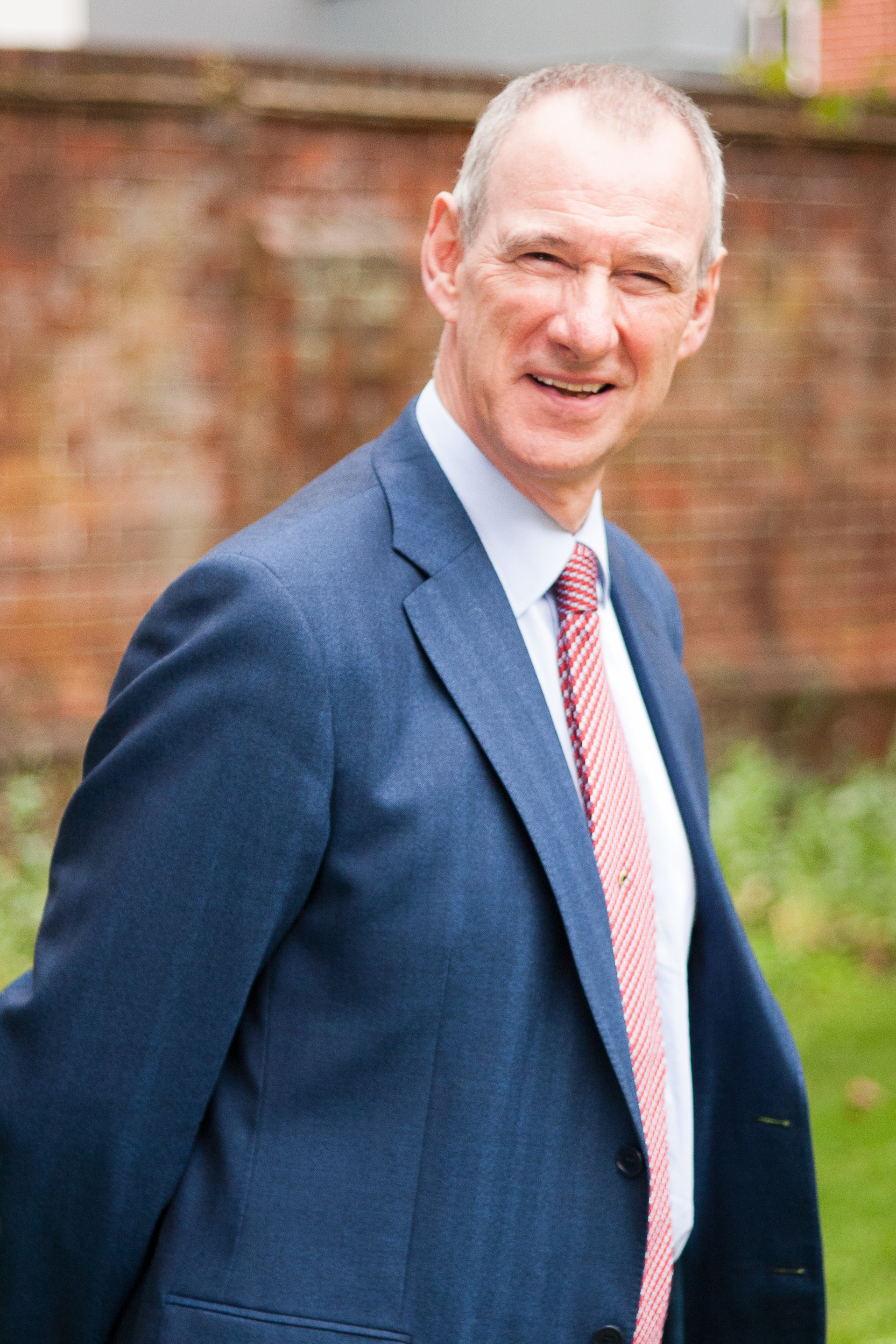
As the summer comes in at last, the pace of change in the languages world is accelerating. The Westminster government is planning to bring in a new curriculum in English schools, while the Scottish government is committing itself to the European target of enabling people to learn two languages as well as their mother tongue. In both cases, the practical implications have yet to be worked out in detail, and there will surely be some real advances as well as potential drawbacks.
In higher education, there are positive moves too. In England, the Routes into Languages programme is gearing up for another three years, with new priorities, the government has put a lot of money into helping students to take a year abroad and there is a possibility of a further HEFCE funded initiative to support the capacity of the sector to provide suitable language courses. Language electives are popular, but language degrees are still getting fewer applications and further closures of departments are in the news.
Many organisations are now pitching in to promote the cause of languages. The British Academy’s work on policy is producing a number of useful reports and materials, most recently, their booklet Talk the Talk (http://www.britac.ac.uk/policy/Talk_the_Talk.cfm) offers students a guide to their prospects using languages. The British Chambers of Commerce highlighted the major shortfall in foreign language skills within the business community that is hampering exports (http://www.britishchambers.org.uk/press-office/press-releases/duplicate-of-bcc-knowledge-gaps-and-language-skills-hold-back-exporters.html#.UdJ9JetAHfI). The British Council, the European Commission, the Foreign Office and many other bodies are weighing in too. It is getting to be a crowded field.
LLAS is supporting the Speak to the future campaign for languages, which has a role in keeping communication between all the different bodies involved in the languages issue, as well as its own forthcoming campaigns. It will launch a ‘1000 words’ challenge, encouraging people to learn other languages to a useful level, and will also promote moves to accredit achievement in home languages.
The new academic year will see the relaunch of Routes into Languages and the LLAS/UCML annual ‘Thriving’ workshop for Heads of Department in September 2013.
The Language Show will have high profile seminars in October. And both the British Council’s International Education Week and the British Academy’s Festival of Languages are planned for November. The autumn is going to be busy. In the meantime we wish all of our readers and supporters a restful and restorative summer and look forward to reconnecting after the break.
Mike Kelly (follow Mike on Twitter at @ProfMikeKelly)
Director, LLAS Centre for languages, linguistics and area studies
This month's e-bulletin in brief
- In the news
- Meet the LLAS team: Matt Reynolds and Marie Weaver
- LLAS blog: Quantitative skills in the humanities : John Canning
-
LLAS events : Our events programme in full can be found at www.llas.ac.uk/events
IN FOCUS : Thriving for the public good, 11 September 2013, The British Medical Association, London
CALL FOR PAPERS : 4 October 2013 : e-learning symposium 2014, 23/24 January 2014, University of Southampton
In the news
Congratulations !!
Professor Mike Kelly has been appointed a Chevalier des Arts et des Lettres by the French Government. This is in recognition of his contribution to promoting French language and culture in particular and language diversity more generally. Professor Kelly is already an Officier of the Ordre des Palmes Academiques, so this is further recognition of his important work and very high esteen in France.
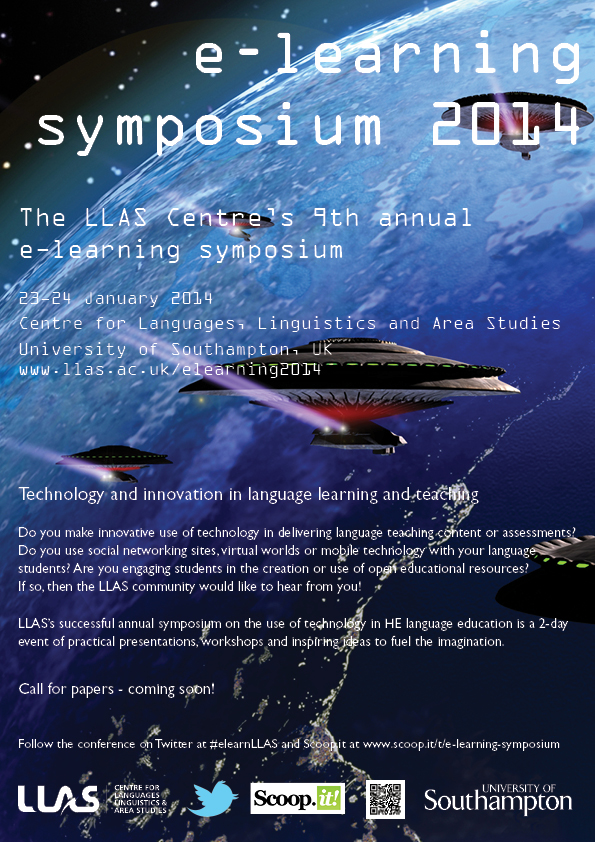 LLAS e-learning symposium 2014 - Call for papers - OUT NOW!
LLAS e-learning symposium 2014 - Call for papers - OUT NOW!
Do you make innovative use of technology in delivering language teaching content or assessments? Do you use social networking sites, virtual worlds or mobile technology with your language students? Are you engaging students in the creation or use of open educational resources? If so, then the LLAS community would like to hear from you!
LLAS’s successful annual symposium on the use of technology in HE language education is a 2-day event of practical presentations, workshops and inspiring ideas to fuel the imagination.. Read more about the symposium on our scoop.it page at http://www.scoop.it/t/e-learning-symposium. To find out more and register to attend, please click here
Professional Recognition
We are pleased to announce that Alison Dickens (SFHEA), Kate Borthwick (FHEA) and Dr Erika Corradini (FHEA) have gained recognition from the Higher Education Academy as Academy Fellows. For more information on the HEA Professional Recognition, click here.
LLAS/Routes into Languages 'Why study languages?' 2013 calendar !! 
This calendar is produced by LLAS Centre for languages, linguistics and area studies as part of the Routes into Languages programme. You can download all months for free at the beginning of each month at http://languagebox.ac.uk/3126 This year, languages featured include Italian, Arabic, Chinese, Tigrinya and more!
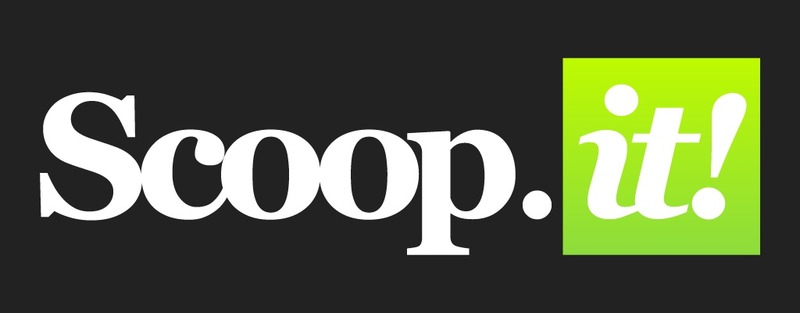 Read more news items on our Scoop.it page at www.scoop.it/u/llas-centre#curatedTopicsTabSelected
Read more news items on our Scoop.it page at www.scoop.it/u/llas-centre#curatedTopicsTabSelected
Meet the LLAS team
 Matt Reynolds
Matt Reynolds
I joined the LLAS web team after a varied career history. When I was 17 I ran off to sea and travelled the world training and qualifying as a navigation officer. Throughout my cadetship I was employed by the container shipping line P&O Nedlloyd. The theoretical side of my training was conducted at Warsash Maritime Centre near Southampton. After coming ashore I put my web development hobby to use and took on various freelance projects before moving into a role as a web developer for TUI Travel PLC in their activity sector.
Marie Weaver 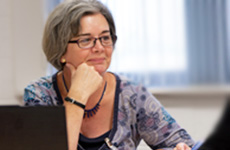
After taking my degree in English at the Université de Nancy, France, I studied transport, translation/ interpretation in commercial English in Lille, Northern France. I worked for a number of years in transport and import /export before starting at the University of Southampton in 2001 and joining the LLAS team in 2003. I provide admin support for UK and EU-funded projects, as well as events/conferences such as the highly successful ICT and Languages Conference which is held every year at the University of Southampton. I also provide the admin support for (UCML) University Council of Modern Languages and am currently supporting the Routes into Languages programme as well as Languages South East.
LLAS blog 
Quantitative skills in the humanities - John Canning, LLAS
In 2011, the British Academy launched the four year Languages and Quantitative Skills (LQS) programme targeting deficits in languages and quantitative skills. Naturally the ‘L’ part of LQS is a key central concern of LLAS, but LLAS is also involved in the QS aspect of the programme.
Forthcoming events in the LLAS community
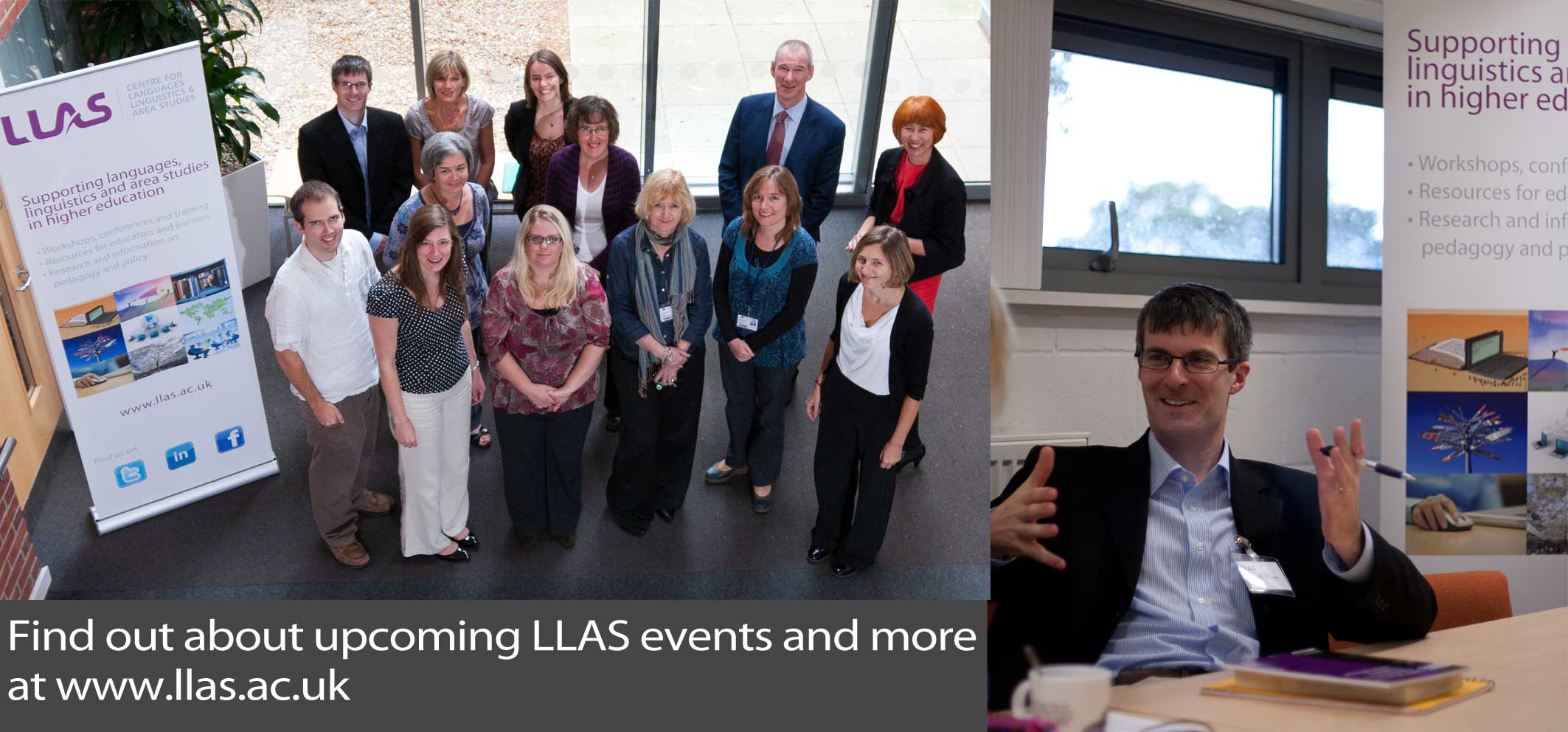
September 2013
IN FOCUS Thriving for the public good
11 September, 2013 - The British Medical Association, London
5th Annual workshop for Heads of Department and leaders in languages, linguistics and area studies
This event is supported by the University Council of Modern Languages (UCML).
Impact and public benefit are key priorities for the public funding of higher education. For example, the 2014 Research Evaluation Framework (REF) requires universities to demonstrate that their research has benefits outside the university as well as within the academic community. The strategies of AHRC and ESRC emphasise the commitment to interact with public life and bring benefits to the country. The Finch report has called for all publicly-funded research outputs to be open access so they can be read by anybody who wishes to read them without payment or library subscription. The Open Educational Resources (OER) movement promotes the free sharing and re-sharing of teaching resources without copyright restrictions and MOOCs (Mass Open Online Courses) attempt to reach new audiences all over the world. The public benefits universities provide to their local communities through outreach work, continuing education and public engagement is a key part of demonstrating impact outside academia. Universities also need to have access agreements in place to promote university study to groups who have traditionally found it difficult to access higher education.
Heads of Departments of languages and related studies face some well known challenges and some new ones. Student numbers and staff-student ratios persist as a key concern. Tightened immigration policies have made the recruitment of (non-EU) international students more difficult and in England changes in the constraints on student numbers have added further complexity to recruitment process. Technological developments and school curriculum changes mean that student expectations change more rapidly than ever. Changes in student funding, demographics, and the school curriculum have introduced great volatility, and longer term shifts in the patterns of international political and economic relations raise existential challenges for languages and other studies dealing with the wider world.
This workshop will cover :
Impact and public engagement
Strategic issues in languages and related studies
Student recruitment, numbers
Profile-raising within the institution

November 2013
Making Video for Language Learning and Teaching
16 November, 2013 - Centre for English Language Teaching, Vanbrugh College, University of York
January 2014
CALL FOR PAPERS : e-learning symposium 2014
23-24 January, 2014 - University of Southampton
|
TRAVEL FUND |
REMEMBER you can follow LLAS on Facebook, Twitter and Linkedin !
We would be grateful if you would forward this bulletin to colleagues and relevant mailing lists. Please do not hesitate to contact LLAS if you have any queries regarding this bulletin.
LLAS Centre for languages, linguistics and area studies
University of Southampton | Avenue Campus | Southampton | SO17 1BJ
p: +44 (0) 23 8059 4814 | f: +44 (0) 23 8059 4815 | llas@soton.ac.uk
www.llas.ac.uk

![]()
![]()
![]()
If you do not wish to receive any future messages from LLAS, please let us know by replying to this email.